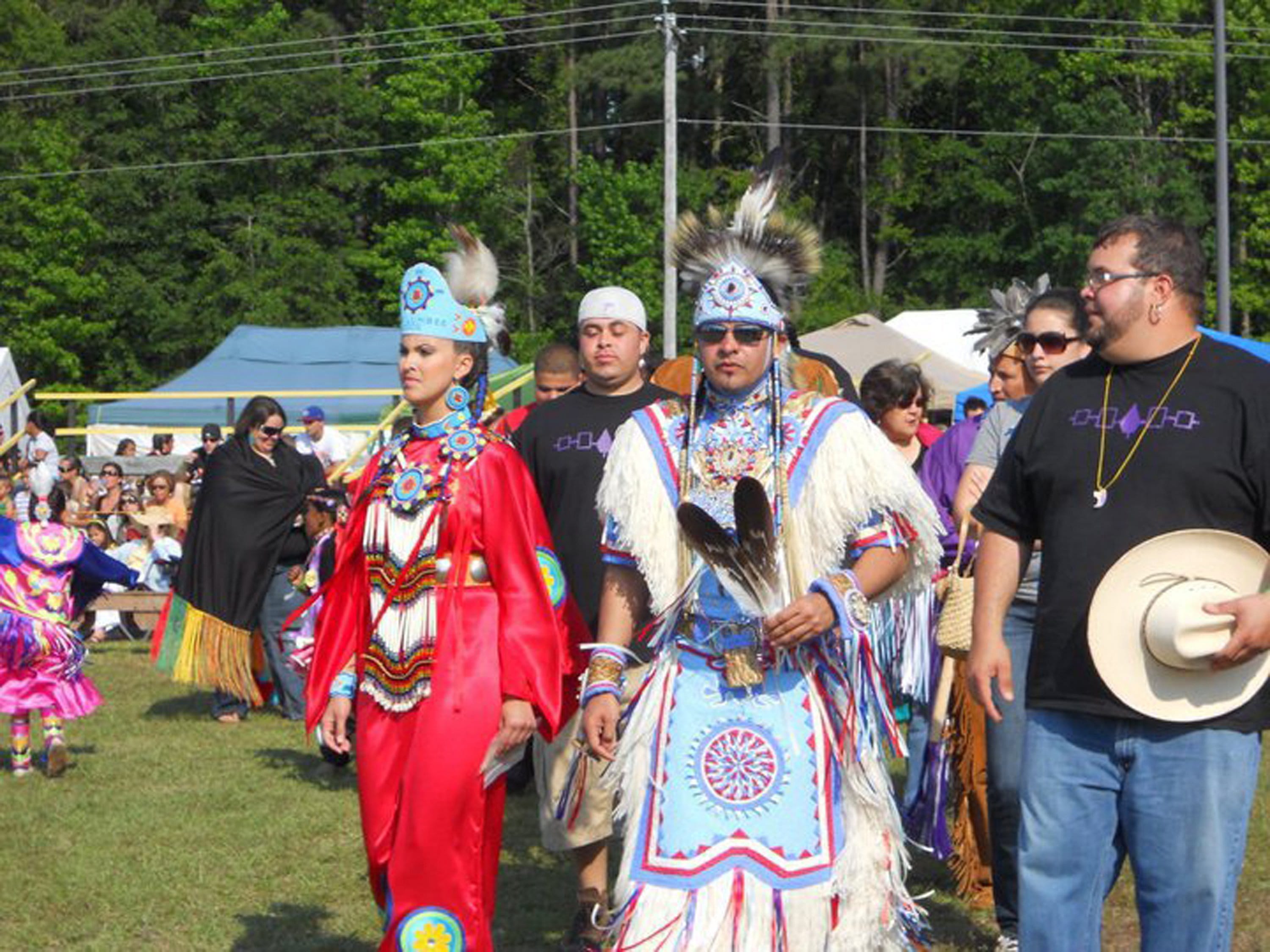WASHINGTON — As a proud Chinook Indian, Gary Johnson rejects the claim that his tribe in Southwest Washington is extinct, even though that’s what the Bureau of Indian Affairs declared more than 12 years ago.
“They couldn’t be more wrong,” said Johnson, a former chairman of the tribe that helped Lewis and Clark navigate the Pacific Northwest in the early 1800s.
Rob Jacobs of North Carolina’s Lumbee Tribe said it was silly that he couldn’t legally wear his eagle feathers because his tribe wasn’t among the 566 federally recognized tribes.
“We have to ask for permission to be Indian,” said Jacobs. “Think about it. It’s so sad.”
While no one bothers to count the tribes that have long gone unrecognized by the U.S. government, experts estimate the number at well over 200.
That might change, under new rules proposed by the Obama administration. They would give more tribes a faster track at joining the ranks of the recognized by making it easier for them to prove their legitimacy.
“This opens the door of opportunity,” said Patty Ferguson-Bohnee, the director of the Indian legal program and a professor at the Sandra Day O’Connor College of Law at Arizona State University.
It also opens the door to money. Winning such recognition makes a tribe eligible for more federal benefits and is a prerequisite to apply for the biggest prize of all: the right to run a casino.
While the rules have won backing from large tribal groups, they’re generating lots of controversy. The Bureau of Indian Affairs has set a deadline of Sept. 30 for the public to weigh in and will then decide whether to adopt the rules.
Gambling opponents say the rules are too lenient and should be scrapped. Some smaller tribes say the rules are too onerous, fearing they’ll still be denied the recognition they’ve sought for decades.
The National Congress of American Indians, the nation’s largest organization of tribal governments, passed a resolution endorsing the new rules “as a matter of long-overdue justice and fairness.” The group said the current rules, adopted in 1978, had “severely deteriorated,” causing decadeslong delays and containing “irrational documentation requirements.”
When the Obama administration published the new rules in May, Kevin Washburn, the head of the Bureau of Indian Affairs, called the changes “long overdue.”
Even if they’re approved, the bureau says it’s uncertain how many more tribes might get recognized, how much it might cost taxpayers or whether any of the newly sanctioned tribes would get to open casinos.
“Whether to grant federal recognition and whether a tribe is eligible for Indian gaming are two wholly separate questions, governed by wholly separate standards and evaluated under wholly different processes,” said Nedra Darling, spokeswoman for the Bureau of Indian Affairs.
After George W. Bush became president in 2001, the Bureau of Indian Affairs withdrew recognition for two Washington state tribes — the Chinooks and Seattle’s Duwamish — that had been approved during Bill Clinton’s presidency. Both encountered opposition from larger neighboring tribes.
Despite the complaints, Ferguson-Bohnee called the new rules a big improvement and said they should eliminate the need for so much paperwork.
“It’s like a hundred times better than what’s currently in place,” she said.
In Washington state, there’s far less enthusiasm among the Chinook Tribe and its backers.
Former Democratic Rep. Brian Baird, formerly of Vancouver and now president of Antioch University Seattle, predicted that neither the Chinooks nor the Duwamish will win federal recognition under the new rules. He said that made little sense since both tribes were so well-known: The Chinooks helped Lewis and Clark, and the Duwamish’s members included Chief Seattle, for whom the state’s largest city is named.
“It’s really hard to find any more iconic tribes,” said Baird, who promoted recognition for the Chinooks during his 12 years in Congress.
Baird criticized a provision that would force tribes whose petitions have already been rejected to get permission from third parties that opposed their applications before reapplying. For the Chinooks, that would mean winning permission from the neighboring Quinault tribe, a longtime opponent. Baird said Congress needed to scrap the provision as a way to aid smaller tribes that faced consistent opposition from larger and more powerful ones.
“It’s rare in your life that you have a chance to right a historical wrong and to restore justice,” he said.
Gary Johnson, 73, of South Bend, on Southwest Washington’s Willapa Bay, said he got a call in July 2002 informing him that the Chinook Tribe would lose its recognition, only two days after attending a White House luncheon with Bush. Johnson said he’d been invited as part of a celebration to kick off the bicentennial celebration of the Lewis and Clark expedition.
“It’s just all political,” said Johnson, who retired as tribal chairman in 2006.
He said federal recognition would help the tribe survive, but he’s not optimistic, calling the new rules “more of the same, and maybe worse.”
“We’d be very excited if they were fair and could offer us some justice, but right now our work is to get them to reconsider and make some changes,” Johnson said.
Jacobs, a former youth coordinator for the Lumbee Tribe who’s now a gaming executive in Philadelphia, was more nonchalant. He said the new rules might be a good thing but that the Lumbee Tribe had been fighting for federal recognition for more than 100 years, thriving without it.
Jacobs wore his eagle feathers at his wedding this summer, violating the Bald Eagle Protection Act. Under a federal policy announced in 2012, only members of federally recognized tribes can wear the feathers for religious or cultural purposes.
But Jacobs plans to keep wearing them and he’s not expecting to get arrested, whether the Lumbees ever win federal recognition or not.
“It wouldn’t make any difference,” he said.



